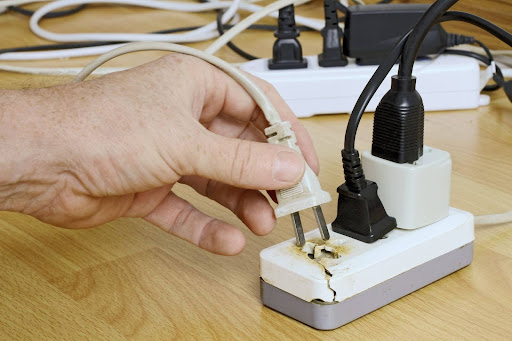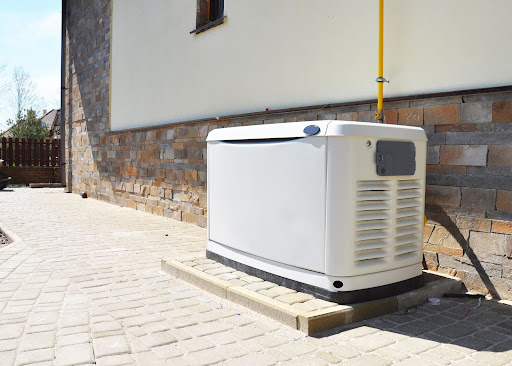
Top Electrical Safety Mistakes Homeowners Make
Electricity makes modern life possible, but it can also be dangerous when misused or misunderstood. At Staley Electric, we’ve seen firsthand how common household mistakes can pose serious hazards — from minor shocks to major fire risks. Whether you’re tackling a DIY project or just plugging in a new appliance, keeping electrical safety top-of-mind is key to protecting your home, your family, and your investment.
We’re breaking down the top electrical safety mistakes homeowners make, along with tips to avoid them. Let’s keep those volts flowing safely!
Overloading Outlets and Power Strips
It’s tempting to plug everything into one outlet — especially in older homes with fewer accessible sockets — but this habit can lead to overheating, fire, and even power outages. Extension cords and power strips aren’t meant to carry a home’s full electrical load.
If you rely heavily on extension cords or plug multiple high-wattage home appliances (like the refrigerator, microwave, or air conditioning unit) into a single power strip, you increase the risk of a short circuit or fire. If your breaker keeps tripping, you notice warm plugs, or you spot flickering lights, these are all red flags that your system is overloaded.
Pro tip: Spread out your devices and consider an electrical upgrade with the help of a licensed electrician if your home struggles to keep up with demand.
DIY Electrical Work Without Proper Knowledge
We all love a good home improvement project — but when it comes to electrical wiring, it’s no place for guesswork. DIY jobs without a proper understanding of the National Electrical Code can create dangerous electrical faults hidden behind drywall or in your ceiling. Even a seemingly simple task like installing a ceiling fan or changing a light fixture requires a working knowledge of voltage, wire gauge, and safe grounding.
Trying to troubleshoot an issue with nothing but a screwdriver and a YouTube video can cause injury, arc flash, or even death. And in many cases, poorly done electrical work can void warranties or homeowner’s insurance.
Leave it to the experts. At Staley Electric, our licensed electricians follow every regulation and safety standard — no guesswork involved.
Ignoring Electrical Inspections and Maintenance
Out of sight, out of mind? Not when it comes to electrical conduits, junction boxes, and circuit breakers. Just like any other system in your home, your electrical setup needs routine maintenance and inspections to prevent issues like corrosion, voltage drop, and wire wear.
Many homeowners only call for help after a failure — like a blown fuse, power outage, or burning smell. But catching problems early can prevent fires, extend the life of your technology, and save you money in the long run.
If you’re remodeling, adding heavy equipment, or just haven’t had an inspection in a while, it’s time to book one. Our team can check for outdated aluminum wiring, confirm grounding, and ensure your setup meets today’s fire safety standards.
Using the Wrong Extension Cords or Power Tools
Not all extension cords are created equal. Using an indoor cord outside, or plugging high-wattage devices like a space heater or power tool into a thin cord, can cause the cord to overheat and spark.
Cords that are too long or too thin for the electric current they’re carrying can lead to voltage drops, reducing efficiency and increasing risk. And worn cords with exposed copper conductors are an accident waiting to happen.
When it comes to tools, only use equipment rated for the task. And never use tools or machines near water without personal protective equipment, like insulated gloves, glasses, and grounded gear.
At Staley Electric, we can help guide you on safe usage, proper gear, and even recommend safer home automation solutions for everyday convenience.
Placing Electronics Near Water Sources
It might seem obvious, but many homeowners still place space heaters, power cords, or kitchen appliances like coffee makers and toasters too close to sinks or wet counters. Bathrooms are another common danger zone, especially when using blow dryers, radios, or charging devices near tubs and showers.
Water and electricity are a dangerous mix, leading to shocks, short circuits, and even fires. Keep electrical devices away from bathtubs, sinks, and flood-prone areas like the basement.
If you’re not sure your bathroom or kitchen outlets are protected with GFCIs (ground fault circuit interrupters), give us a call. We’ll make sure your home is up to code and protected.
Don’t Let Electrical Mistakes Cost You
Your home is one of your biggest investments, so don’t risk it with avoidable electrical mistakes. From outdated electrical wiring to overloaded circuits, every shortcut or overlooked issue adds up to one big hazard.
At Staley Electric, we specialize in keeping homes and businesses safe, efficient, and up to electrical code. Whether you need an inspection, a panel upgrade, or help solving an ongoing electrical issue, our experienced electrical contractors are here to help, providing the knowledge, gear, and professionalism your home deserves.
Call Staley Electric today to schedule your electrical safety inspection. We’re your local experts in fire prevention, power management, and system upgrades because when it comes to safety, there’s no room for shortcuts.


Recent Comments